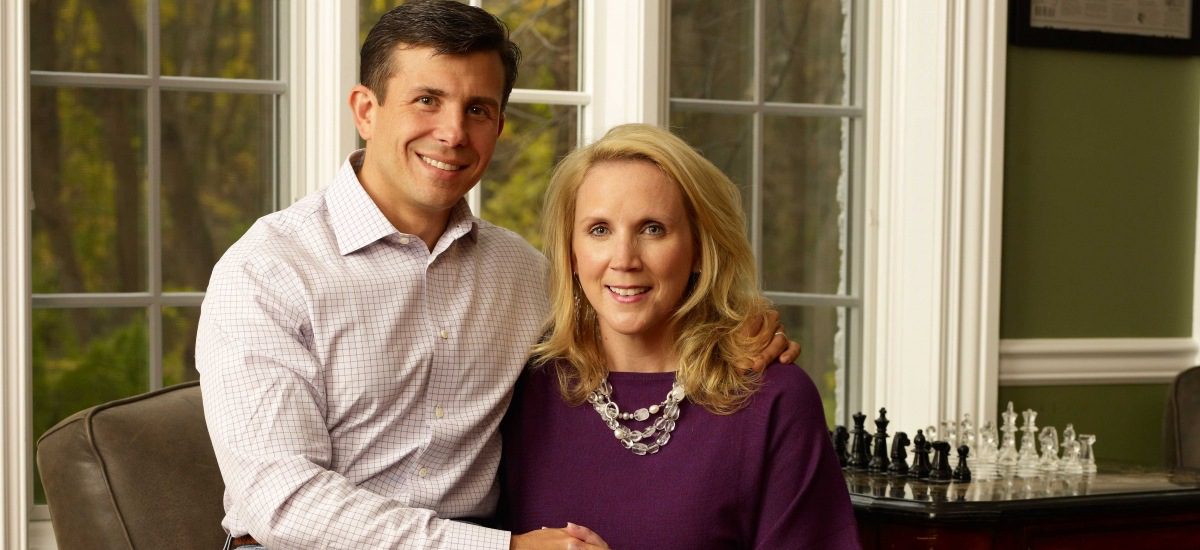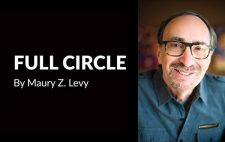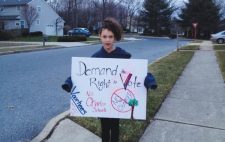Princeton’s John and Aileen Crowley have done what most couples would say was impossible. As they watched two of their children struggle with a rare, debilitating disease, they risked everything to find a cure on their own. They aren’t doctors, nor are they scientists. They are just parents determined to save their kids. And they did. Their remarkable story is the basis for the new movie, Extraordinary Measures.
Being portrayed by Brendan Fraser in a movie never crossed John Crowley’s mind when he quit his job in 1998 and moved his family to Princeton. Prior to that time, Crowley had been enjoying life in San Francisco with his wife and children. But shortly after the birth of their third child, a devastating diagnosis changed their life – forever.
The Diagnosis
“Megan was 15 months old when we got the diagnosis that she had Pompe disease,” recalls Crowley. At the time, their baby Patrick was only seven days old. A few months later they had Patrick tested, and discovered he also had the disease. The Crowleys’ oldest son, John III, born in 1995, was not afflicted.
Pompe [pronounced pom-pay] is a very rare genetic disorder that causes a deficiency in the enzyme that breaks down glycogen. A “cousin” disease of muscular dystrophy, Pompe causes muscle weakness throughout the body, affecting the skeletal muscles, diaphragm, nervous system, liver and heart. Neither Crowley nor his wife Aileen had ever heard of the disease, or had any idea they were both silent carriers.
Realizing the disease was life-threatening, the family quickly packed up and moved east. “We came back to New Jersey for three reasons,” points out Crowley. “One, this is where family is and we wanted to be close to family. Two, I accepted a position in the marketing department of Bristol-Meyers in the Princeton area. And three, we wanted to be near doctors on the East Coast.”
There was no cure for the disease and the pace of scientific research was excruciatingly slow. The Crowleys began researching Pompe themselves, but felt constantly frustrated. They were running out of time, as Megan and Patrick became progressively sicker. As the children’s muscles weakened, swallowing, chewing and breathing grew more and more difficult and they were soon put on ventilators. They also couldn’t walk.
Taking Matters into Their Own Hands
Though Crowley had limited experience in the medical world, he allied himself with scientists and doctors, believing he was in a race to develop a treatment to save his children. “Bristol-Meyers was a wonderful place to work with great people and great benefits, including health insurance,” says Crowley. “I envisioned I would stay there a long time. Only out of a sense of frustration that science wasn’t moving quickly enough did I take the step and the risk of leaving the security of that job to raise money and start a company.”
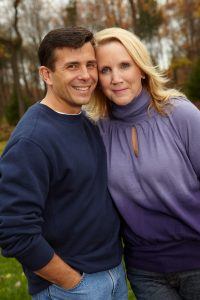 To begin a biotechnology firm, Crowley knew he would need millions of dollars. Luckily, Crowley had something on his side: The Orphan Drug Act of 1983. The act encourages development of drugs for “orphan diseases,” defined as affecting less than 200,000 people. The law allows companies that develop an orphan drug to sell it for seven years without competition, thus allowing the company to profit from the research. Without the Orphan Drug Act, there would be no financial incentive for companies to research drugs for rare diseases. The act creates substantial market potential for orphan drugs, which is, of course, appealing to investors. That appeal helped Crowley raise capital to fund his company.
To begin a biotechnology firm, Crowley knew he would need millions of dollars. Luckily, Crowley had something on his side: The Orphan Drug Act of 1983. The act encourages development of drugs for “orphan diseases,” defined as affecting less than 200,000 people. The law allows companies that develop an orphan drug to sell it for seven years without competition, thus allowing the company to profit from the research. Without the Orphan Drug Act, there would be no financial incentive for companies to research drugs for rare diseases. The act creates substantial market potential for orphan drugs, which is, of course, appealing to investors. That appeal helped Crowley raise capital to fund his company.
He became CEO of the start-up Novazyme, a biotechnology company that researched new experimental treatments for Pompe. The firm was acquired a year-and-a-half later by Genzyme Corporation, one of the world’s largest biotechnology companies. Crowley served as senior vice president of Genzyme’s worldwide Pompe disease program. The company was successful, developing a drug that showed promising results.
Crowley was eager for his children to begin taking the drug as soon as possible, but “there were people at the time who questioned the appropriateness of the children of a drug company executive being treated in clinical study,” he recalls. “There was no conflict of interest whatsoever, but eventually, to take away any question around it, I resigned my job to make it more straightforward for the kids to get into the clinical study.”
Now, seven years since Megan, 13, and Patrick, 11, began taking the experimental drug, the kids have beaten the odds. “They are in seventh and sixth grades at John Witherspoon Middle School in Princeton,” says Crowley. “The medicine we developed saved their lives, in that it fixed their heart, and the heart was the most life-threatening aspect of the disease. Before they received the drug, their heart was two to three times its normal size. It’s now normal – you couldn’t tell it from another kid’s.
“They’re still very special kids. They’re still in wheelchairs and require ventilators to breathe. The drug has helped their muscle strength, but over time, those improvements have stopped and they’ve stabilized. But the disease never affects the mind. They’re incredibly smart, precocious little kids. They thrive around being with other people. They are incredibly happy. Aileen and I can’t say enough wonderful things about what so many teachers did to help them learn and thrive and in many respects just be normal kids, despite their physical handicap.”
The Movie
Though they never could have imagined a movie about themselves, the Crowleys are enjoying their 15 minutes of fame. Extraordinary Measures, starring Harrison Ford, Brendan Fraser, and Keri Russell, chronicles the true, inspirational story of the family’s fight to find a cure to save their children’s lives. Crowley has a small cameo in the film, ironically portraying one of the businessmen who is asked to fund the new research company.
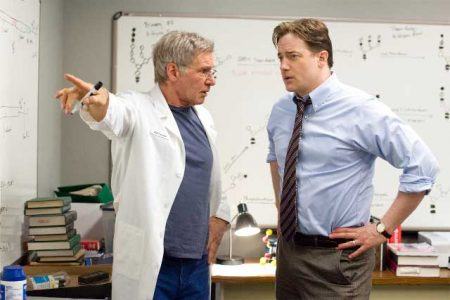 “The kids are excited,” points out Crowley. “It’s kind of neat for Patrick and Megan because of all of the things they can’t do in life because of their physical handicaps. But then also, to have the world see the inspiration they provide, and the grace and strength they have in living, to be able to share that in a dramatic way with millions and millions of people is a special, unique part of their lives. For all the special needs they have, they also have remarkably special gifts to share with the world. This film, hopefully, will be one way to do that.”
“The kids are excited,” points out Crowley. “It’s kind of neat for Patrick and Megan because of all of the things they can’t do in life because of their physical handicaps. But then also, to have the world see the inspiration they provide, and the grace and strength they have in living, to be able to share that in a dramatic way with millions and millions of people is a special, unique part of their lives. For all the special needs they have, they also have remarkably special gifts to share with the world. This film, hopefully, will be one way to do that.”
Crowley is enjoying being portrayed by Fraser. “He’s such a terrific guy with such a tremendous range of skills,” he says. “Our kids think he’s the coolest guy ever. He’s a dad of three young boys so he can empathize in a certain way with what it’s like to be a dad of special kids. They also think that he’s much better at playing PlayStation 3 than I am, and they’re right!”
Crowley also says the movie provides a reasonable portrayal of his children. He describes John, 15, as a terrific big brother who enjoys fighting with his sister and protecting his little brother. Megan, he says, is an amazingly precocious and charismatic 13-year-old. She doesn’t ever feel sorry for herself, but she may feel sorry for the rest of the world, Crowley says, because they aren’t as smart as she is. Patrick is weaker than his sister, as the disease hit him harder. But according to his dad, he has a terrific sense of humor and much inner strength.
“When we saw the film together as a family the first time, we were most concerned about what the kids would think about it and what it was like for the actors to portray them,” Crowley says. “But they all, in different ways, very much enjoyed the film and were very proud.”
 The movie condenses a span of about five years into 18 months. Crowley hopes it will inspire people to take actions that can impact the world. In fact, the movie ends with the Eric Clapton song “To Change the World.”
The movie condenses a span of about five years into 18 months. Crowley hopes it will inspire people to take actions that can impact the world. In fact, the movie ends with the Eric Clapton song “To Change the World.”
“We didn’t change the world, but we, and a lot of people working with us, changed one small part of the world that was so very important to us as a family.”
Crowley also hopes people will realize we’re all unique and we’re all different, and that they should appreciate that uniqueness. “Life is special, and it’s about the time you have with one another,” Crowley says.
Crowley wrote a memoir, Chasing Miracles, to share his family’s perspective of life and everything they’ve learned. “We’ve learned a lot more from our kids than we ever taught them,” he says. “I think we share the themes of strength, hope and joy.”
The Future
The goal now is to find a drug that will keep making Megan and Patrick stronger. Crowley’s current company, Amicus Therapeutics – along with other biotech companies – is working on these drugs. “There are a lot of exciting technologies on the horizon,” Crowley says. “Megan and Patrick may live many more decades. It’s one day at a time, and we appreciate every day.”


